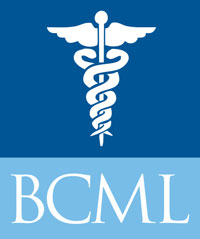At the most basic level “walk-in” medical care is care you can receive without a prior appointment. Technically, this can describe a variety of medical facilities including retail clinics, urgent care facilities, community health centers, and emergency rooms. However, while both urgent care and walk-in clinics qualify under this definition, there are distinct differences between the two.
Overall, an urgent care facility has greater capabilities than a walk-in clinic while neither is as robust as an emergency room. Here we will look at the services typically offered at urgent care vs. walk-in clinics and when to visit each.
What is a Walk-In Clinic?
The term “walk-in clinic” refers to medical facilities that do not require an appointment and can provide care for many non life-threatening health concerns. However, walk-in clinic is sometimes used to refer to what is also known as a “retail clinic.”
While most non retail clinics are free standing facilities or part of larger medical complexes, a retail clinic is most often located inside a pharmacy. Originally intended to provide basic medical care in underserved communities, retail clinics can provide immunizations, prescription refills, and screening for common health concerns like high blood pressure. Some may also be able to diagnose and treat common illnesses like strep throat.
In contrast, a free standing walk-in clinic will provide everything a retail clinic does with the addition of services like blood testing, x-rays and treatment for a wider range of injuries and illnesses.
What is Urgent Care?
Urgent care has many of the same services as a walk-in clinic but has an emphasis on treatment for non life threatening, but urgent matters. This would include treatment for minor wounds, sprains, simple breaks, and burns. An urgent care will also have greater diagnostic capabilities than a retail clinic including blood testing, x-rays, and urinalysis. Additionally, urgent care will usually have a doctor on staff while a retail clinic will have a nurse practitioner or physician’s assistant.
When to Go to Urgent Care Vs a Walk-In Clinic
While urgent care and walk-in clinics have similarities, each is better for different situations. Things to consider before choosing include the severity of your injury, hours of operation, and if an emergency room or your primary care physician may be a better choice.
Immunizations: For vaccines and other routine shots, a walk-in clinic is likely to be your best option. However, your primary care physician is also a good choice if you can get an appointment.
Physical: A physical and other basic health screenings can be performed at a walk-in clinic like Bay College Medical & Lockwood Diagnostic. If you need specific testing, however; it is best to call ahead to ensure the clinic offers that service since walk-in clinics can vary greatly. At BCML we offer a full range of diagnostic services to help with regular check-ups and diagnosis of specific ailments.
Minor Infections or Illness: For health concerns such as strep throat, urinary tract infection, low grade fever, or small rash, a walk-in clinic is typically best. However, if any of these issues is severe, an urgent care may be a better choice. Similarly, for a high fever that will not break in 3 days or less it is likely time for an emergency room visit..
Bone Breaks: While an urgent care and some walk-in clinics can handle simple sprains and some fractures, this is usually a matter for the emergency room.
Major Accidents: Car accidents, burns, head injuries, chest pains, signs of stroke and any other potentially life-threatening condition should be treated at an emergency room. Urgent care may be able to help with some of these conditions but they are more likely to direct you to an emergency room so it is better to go there first.
Other Considerations
Hours of Operation: One major determining factor is when you need treatment. Generally, a retail walk-in clinic will be open the same hours as the pharmacy it is located in. An urgent care, on the other hand, will typically have extended hours into the later evening and on the weekend. However, even with extended hours, an urgent care may not be 24/7. If you need care in the middle of the night or during the weekend, an hospital emergency room may be the only option.
Where You Will Receive the Fastest Care: While an emergency room is the most likely to have the tools for just about any injury, it can pose the issue of extreme wait times. Also, patients with the most severe issues will be seen first. Therefore, while you should always seek emergency attention when it is needed, try to utilize a walk-in clinic or urgent care whenever possible.
Should You Wait to See Your Primary Care Doctor: When your health concerns are not urgent or an emergency, a visit to your doctor may be more beneficial. Your physician will have your medical history on file and be better able to assess your overall health. If possible, call your doctor to describe your symptoms and see what their recommendation is.
Virtual Doctor Appointments: Virtual appointments have some obvious limitations but they can be a convenient way to consult with your doctor quickly. In a virtual meeting, your doctor may be able to provide advice for at-home care of a variety of illnesses and injuries. They may also be able to diagnose some visible health concerns such as rashes.
Urgent Care & Walk-In Clinics Downtown Toronto
Both urgent care and walk-in clinics can treat and diagnose a wide variety of health concerns while allowing you to skip long wait times for an appointment with your doctor, or the emergency room.
If you need the services of a walk-in clinic in Toronto, Bay College Medical & Lockwood Diagnostic is here to help. Along with care for illness and injury, we also offer dental care, physiotherapy, cardiology, blood testing, hearing tests, and eye exams. For help with your total health, call BCML today at 416-929-1900.


